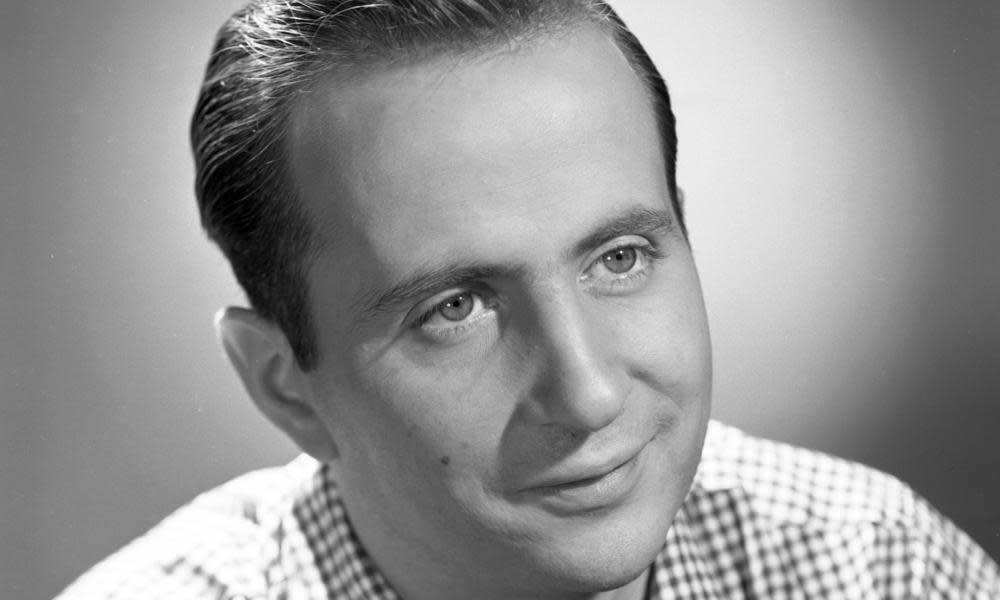Johnny Mandel obituary

A brief survey of the career highlights of Johnny Mandel, who has died aged 94, might pick out his composition of the song Suicide Is Painless, the theme tune from both Robert Altman’s 1970 film M*A*S*H and the subsequent TV series, his Oscar and Grammy-winning song The Shadow of Your Smile (from the film The Sandpiper), and his Grammy-awarded arranging work on Natalie Cole’s blockbuster album Unforgettable (1991). But in a working life that stretched from the 1940s into the new millennium, Mandel amassed enough credits as arranger, composer and musician to fill a small telephone directory.
Beginning his musical life as a trumpeter and trombone player with the bands of such eminent jazzmen as Woody Herman, Tommy Dorsey, Artie Shaw and Count Basie, Mandel honed his composing and arranging skills, but did not become known to a wider public until he began working in Hollywood in the late 1950s.
At André Previn’s recommendation, he was recruited to write the score for I Want to Live! (1958), a showcase for a superb group of jazz musicians led by the saxophonist Gerry Mulligan. In 1964 he collaborated with the lyricist Johnny Mercer on Emily, the theme song from the James Garner and Julie Andrews vehicle The Americanisation of Emily, which was popularised by Frank Sinatra’s recording. Mandel had arranged Ring-a-Ding Ding!, Sinatra’s first album on his own Reprise label in 1960.
The Shadow of Your Smile followed in 1965, taking the Oscar that year and the Grammy in 1966, alongside the best original score Grammy for The Sandpiper. He won a further Grammy in 1981 for his arranging work on Quincy Jones’s song Velas, and followed his success with Cole with a fifth Grammy, for Shirley Horn’s Here’s to Life (1992).
The artists with whom Mandel collaborated amount to a history of US popular music. They range from Chet Baker, Art Pepper, Sarah Vaughan and Peggy Lee to Barbra Streisand, Michael Jackson, Diana Krall and Hoagy Carmichael. When he made The Movie Song album with Tony Bennett in 1966, the singer described it as his “all time favourite record”.
Mandel was born in Manhattan. His father, Alfred, owned the clothing company Mandel & Cash, while his mother, Hannah (nee Hart-Rubin), had entertained ambitions to be an opera singer. Johnny attended Public School 9 (PS9) on 82nd Street.
In 1934 Alfred moved the family to Los Angeles when his business was badly hit by the Depression, but after his death three years later Hannah brought them back to Manhattan. They lived for a time in the Essex House hotel on Central Park South, paid for by Alfred’s insurance cover. Johnny had already had his musical ambitions fired up by a cousin who played drums with Harry Reser’s band. Now he got to know the music publisher Jack Robbins, who took Johnny to hear the leading jazz bands as he tried to sell them sheet music.
He began learning the trumpet, and in 1942 won a band scholarship to the New York State Military Academy. In 1943 he played with jazz violinist Joe Venuti’s band, and while at college also took lessons in arranging from the bandleader Van Alexander. He graduated from the academy in 1944, and joined Billie Rogers’s band. He grasped early on that since jazz bands were frequently playing a similar repertoire of popular songs, the skill of an individual musical arranger was crucial.
Switching from trumpet to trombone, he moved on to Henry Jerome and his Stepping Tones – with whom the future Federal Reserve chairman Alan Greenspan played tenor sax – and Boyd Raeburn’s band, where he played on recording sessions with such bebop stars as Dizzy Gillespie and Oscar Pettiford. In 1947 Mandel polished his musical skills by attending the Manhattan School of Music and the Juilliard School, before putting in stints with Buddy Rich, Woody Herman and Artie Shaw.
In 1953 he was invited to join Count Basie’s band, which he described as “the greatest job I ever had”. Among Mandel’s compositions from this period were Krazy Kat (for Shaw), Not Really the Blues (for Herman), Hershey Bar (recorded by Stan Getz) and Straight Life (for Count Basie). He did some TV work on Sid Caesar’s Your Show of Shows, and in 1954 gave up playing the trombone to concentrate on his writing. Prior to his breakthrough in Hollywood, he had been working in floorshows in Las Vegas.
Other notable films he contributed to include John Boorman’s Point Blank (1967), Altman’s That Cold Day in the Park (1969), Hal Ashby’s The Last Detail (1973) and Being There (1979) and Sidney Lumet’s The Verdict (1982). He also worked on numerous made-for-TV movies as well as the 1970s detective series Banyon. His final arranging credit was for Barbra Streisand’s standards album Love Is the Answer (2009), which topped the US chart.
In 1993 he received an honorary doctorate of music from Berklee College of Music, was inducted to the Songwriters Hall of Fame in 2010, and in 2018 received the Grammy trustees award.
In 1959 he married Lois Lee. They later divorced, and in 1970 he married Martha Blanner, with whom he had a daugher, Marissa. Martha died in 2019, and he is survived by Marissa.
• John Alfred Mandel, musician, composer and arranger, born 23 November 1925; died 29 June 2020


